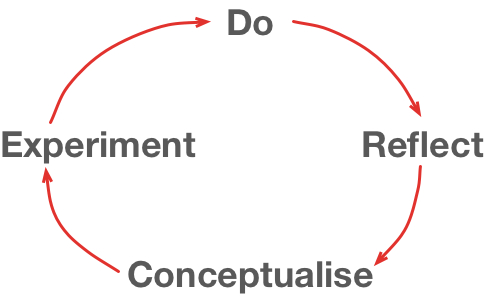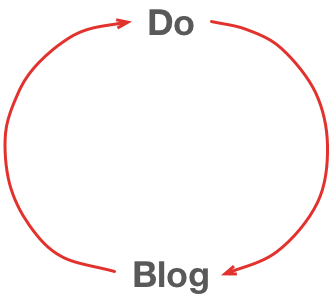Finding Your Voice (As A Blogger)
Has this blog changed or has the blogger who writes here changed? After all don’t we blog, at least in part, in order to improve ourselves as both writers and people?
I’ve had a number of comments in the past few months, regarding changes on this blog. Am I becoming more professional, chasing readers or in some way changing gears? The short answer is, no, not really. My reasons for blogging haven’t changed much over the years. However, my voice, as a writer has changed. The reasons for that change are relevant for other bloggers as well.
A Little History
Before writing this post I took at little look at the blog’s archives, right back to the start of the current version of this site, in 2004. I also read some personal journal entries from the years before that, covering my move from London to Delhi and my goals for blogging.
Building connections, sharing insights, reflecting on experience and trying to become better at what I do all figured prominently. In fact, I was pleasantly surprised by how positive the tone was in a lot of my older notes!
One thing certainly stood out – I felt that the best blogging was similar to the action-reflection model of learning. That’s something I still believe in.
The Action Reflection Model
Originally developed as an approach to adult education, the action-reflection model is form of practical learning, especially useful for work and life skills. The idea, in a nutshell, is that you do or experience something, then think about it, in order to do it better, the next time.
The action reflection approach was developed as a way to counter the “theory first” styles of teaching. Not that theory is irrelevant; theorising should come after experience.
Action-Reflection Blogging
One important aspect of the Action-Reflection approach is the idea that learning works best when it is socialised. Reflection is typically a personal activity. But, conceptualising and experimenting – the processes of trying to find theories to explain what happened and testing those theories – that works best through conversation and collaboration.
When blogging first took off, in 99-01, a lot of bloggers really were cutting edge voices. Many bloggers were writers, thinkers, activists and practitioners who were struggling to get their thoughts into the mainstream of whatever field they worked in.
There was also a sense that blogging was a way to improve oneself – either as a person, or as a writer, or in some more specific way. The action reflection loop for bloggers was kind of simple.
The Rest Of The History
But, as blogging became more popular, the personal and diaristic approaches to blogging took off. Then, a little later, the professional or, “I’ve got something to sell” style grabbed the limelight. Autobiography, confession, propaganda and case-studies soon dominated a lot of blogs.
Then, as social media took off, the autobiographical, diaristic and confessional blogs mostly died off – especially a lot of the smaller ones. That made sense. For most people sharing on places like Facebook was a lot easier and less demanding than tending to a blog.
A New Trend
In the past year or so, I’ve noticed a lot of bloggers changing focus. Many have gone to cleaner more minimal layouts. Some have dropped ads. More than a few have become more self-reflective, about how they blog and use social media. And, there’s been a shift back to engaging with and responding to comments.
Something akin to the action-reflection mode is coming back into vogue – we could call it collaborative self-improvement.
Action-Reflection And Your Blogging Voice
I’m often asked, by new bloggers, or those thinking of starting a blog – “what do I write about.” My answer has always been – “write about what you do.”
In the same vein, when I’m asked – “how do I make my blog more interesting,” I reply – “to be more interesting online, become more interesting offline.”
Too often we hear the glib advice – if you want to become better at something, start a blog. But, writing on a blog won’t, in and of itself, make you a better writer. And, posting photos online won’t necessarily make you a better photographer.
That’s why I’m so enamoured with action-reflection. It puts the activity in the larger context of becoming better – as an artist and, ultimately, as a person. Moreover, it opens us up to learning from others as we go down this path – which is perhaps the largest benefit of doing this in public, with a blog, than doing it in private.
It also helps us find our voice, because it goes a long way to answering the who are we writing for, why are we writing and what do we hope to achieve by writing kinds of questions.
In The End
The best way to find your voice, as a blogger, is to tell your story. All of us have things in our lives, our work, our travels and our relationships that are unique, different and intriguing. Those are the stories that most need to be told and the ones most likely to find an audience.
In the end, losing your voice, or worse, facing writer’s block is largely about unreconciled voices in your head. We over edit, self-censor, fret about imagined readers or simply don’t write – mostly because of fear.
But, what is there to fear if your goal is simply to become better at what you do and, in the process, become a better person – all while sharing your life with amazing and supportive people who give up their time to read your thoughts?






